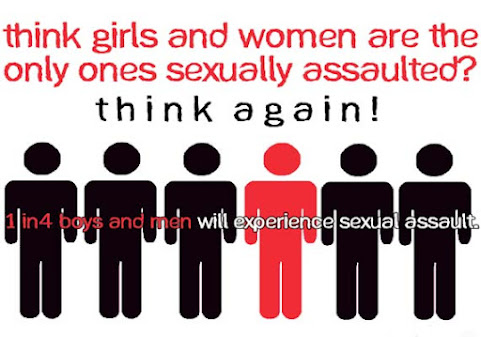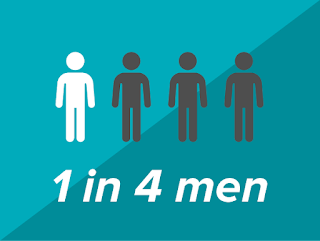In India, there is no neutral law against women raping males.
Rape is India's fourth most severe crime, and it's a worldwide concern. It is commonly thought of as a crime perpetrated by males against women, but have we ever considered it the other way around? Rape was always thought to be a crime perpetrated solely by males against women, however, it has since been shown that members of other genders, such as men and transgender groups, are also victims. Anyone may be raped, regardless of age, gender, or sexual connection. Even though there are several such incidents, most of them have gone unreported for fear of the report raising concerns about its efficacy.
The majority of rape incidents involving persons who aren't women have gone unreported. People are aware of this, but they must learn about this sort of crime in order to preserve a functional judicial system and eliminate this heinous crime.
First and first, it is important to acknowledge that rape victims and perpetrators can be of any gender and that the crime can occur anywhere, including schools, offices, jails, businesses, and schools. Male rape investigations did not commence until the 1980s, and they mostly focused on the sexual harassment of children. Even in the twenty-first century, male rape victims find it difficult to disclose sexual abuse because we live in a society where people feel that if a guy is sexually assaulted, he can protect himself by having a strong male authority.
As a result, most individuals are concerned that reporting sexual assault would cast doubt on their sexual talents, or that if a guy rapes them, they will be labeled gay. Some people tell their stories, but the majority of victims are concerned about not reporting their rape to the authorities. According to estimates, 1 in 17 individuals is compelled to enter the house at some point in their lives, according to research by the US Centers for Disease Control and Prevention (Eastern Europe, USA). An RPF agent was recently accused of attempting to rape or conduct a crime while still alive in Mumbai, India, yet this patriarchal society does not think that males can be raped.
Consent is not obtained in the majority of these instances. According to psychologist Sarah Khan, less than one in ten male rapists are victims of male rape who receive no assistance or services, and there is a lack of a competent legal framework to combat such crimes.
Indian Laws on Rape
Rape is defined by Section 375 of the Indian Criminal Code (IPC) as sexual intercourse with a woman against her will, without her consent, by coercion, misrepresentation, or fraud, or while she is intoxicated or duped, or when she is of unsound mental health, and in any case, if she is under the age of 18 years. When the following requirements are satisfied, a man is deemed to have raped: -
He compels a lady to penetrate her vagina, mouth, urethra, or anus in any way on him or others.
Alternatively, enter or force any item or body part other than the penis to any extent into a woman's vagina, urethra, or anus;
Or puts his lips on a woman's vagina, anus, urethra, or any other part of her body to compel her or others to enter into her vagina, urethra, anus, or any other part of her body; or forces her to do this to him or another person.
According to the preceding description, it may be inferred that males always confront women under Section 375 of the Indian Penal Code. It is not rape but a perpetrator when a woman compels a guy to have sex with her. As a result, it is taken for granted that a guy has raped a woman. It, on the other hand, disregards the man's consent in regards to the woman's sexual activity and always views the woman as the victim. In many situations, a male False Rapes a woman in order to exact retribution or to conduct an unlawful crime.
This demonstrates that India lacks specific laws to protect male rape victims; while Section 377 of the Indian Penal Code, which states that "whoever voluntarily has carnal intercourse against the order of nature with any man, woman, or animal shall be punished," is an exception, it is insufficient to protect men's rights in India.
The Protection of Children from Sexual Offences Act of 2012 (POCSO Act) criminalizes sexual assault against boys, but adult males are not subject to the same laws. Adult male sexual abuse is addressed differently from adult female sexual abuse. The cause of this tendency is unknown. India may have laws against rape against minors, but it should also have laws against rape against adult males. According to the conservative viewpoint, males are only vulnerable when they use their position to abuse women. The feeling of equality provided by Article 14 of the Indian Constitution does not appear to apply to sexual assaults and crimes against women and children.
Criticisms and pitfalls of criminal jurisprudence
One of the most significant aspects of Indian rape legislation is the lack of gender neutrality. The development of Indian law must be based on the demands and requirements of the topic. Some laws aimed at ensuring the safety and well-being of women have been misused in the past, forcing lawmakers and courts to intervene and remedy errors.
The guarantee of equity and equal protection enshrined in Article 14 of the Constitution appears to have escaped the notice of our politicians when it comes to enacting legislation against sexual harassment. Although the judiciary has no intention of discriminating against male victims of sexual harassment, males are rarely recognized as victims in this matter. Sexual harassment laws that are not connected to gender take time to pass, and the government must pass them in order to remove inadvertent gender discrimination and offer equal protection.
The Supreme Court, on the other hand, rejected the gender-neutral legislation, noting that a legitimate categorization for a crime committed by a woman against a male exists. The court is not stating that a woman cannot rape a man, but that certain circumstances would fall under distinct IPC crimes, according to CJI Dipak Misra.
A similar argument was presented before the Supreme Court earlier this year, challenging the constitutionality of the country's adultery rules, which exclusively penalize a married man who has an extramarital sexual connection with another married woman. A bench consisting of Justices A M Khanwilkar and D Y Chandra Chud, as well as Chief Justice Dipak Misra, reached the preliminary conclusion that, while criminal law emphasizes "gender neutrality," this concept is absent under Section 497 of the Indian Penal Code, which deals with the crime of adultery, and referred the case to a larger bench.
Conclusion
Any crime should be punished as harshly as it was done, and it should not be restricted to a single category. It should be applicable to everyone, regardless of gender. Pain is unrivaled, and it affects everyone in the same way. Survivors, whether male, female, or transgender, experience the same physical, mental, and emotional pain.
Gender words suggest that a male cannot report a woman's sexual assault since rape can only be perpetrated by a man, according to the definition. Under the impact of violence or a beating, a person can launch a case, but not for rape. Even though the crime is the same, the person's punishment is not rape. India is adapting and changing in order to become a prosperous nation. So, why do we lag behind when it comes to rapping a man? The laws of the United Kingdom are gender-neutral.
As a result, the Indian legal system and citizenry must acknowledge that males may be raped by women as well. Men should be recognized as victims, not simply offenders, by the law. Male sexual harassment must be made more visible, and the government and society must modify societal norms and listen to the anguish of male victims.





Comments
Post a Comment
Please do not enter any spam link in the comment box